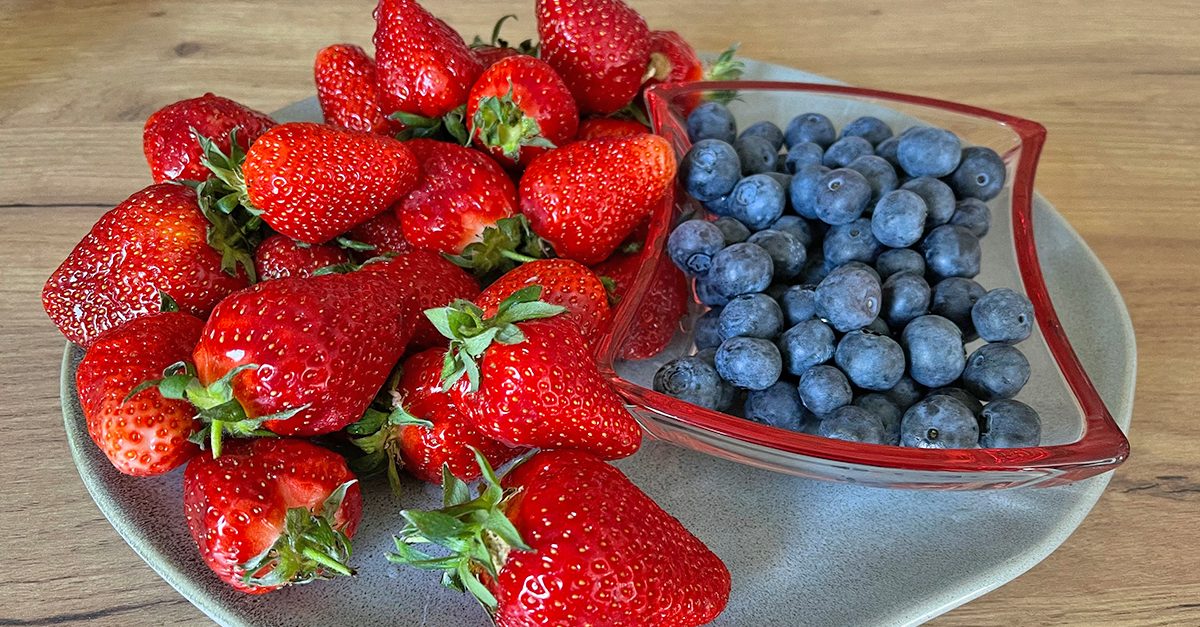;)
Some recipes require freezing fruits, but only a few know that freezing fruits and veggies can keep them fresh for very long. For the few that even do know, it is not practiced because very little to anything is known about the process and its effectiveness.

The key to freezing fruits and veggies is using ONLY the proper know-how. Below we have compiled tips and the appropriate steps to be able to adapt the process for your everyday use:
How To Freeze Fruits

Before freezing, you have to wash and sort the fruits. You may choose to discard fruits that have started to rot or feature some damage or use them to make fruit puree or other such recipes.
Here on are a few delicate fruits and how best they should be frozen:
Berries: includes strawberries, blueberries, etc
Arrange the fruits in a single layer on a baking sheet. Place them in the freezer; when fully frozen, transfer them to a plastic freezer bag or container. Press the bag to ensure that the air is removed.
Apples, Peaches, Nectarines, Apricots
These are fruits that start browning because of exposure to oxygen when they are cut. After washing and cutting them into any size, sprinkle ascorbic acid solution, which is simply a mixture of water and vitamin C. You can alternatively dissolve lemon or lime juice in water.
After the acid wash, dry, then freeze the fruits.
For other fruits, you can freeze them while keeping the following tips in mind:
- Fruits freeze quickly when you spread them in a single layer on a rimmed sheet pan.
- Store the fruits in airtight containers or freezer bags.
- Label the packages and date them to monitor quality.
- Fill whatever container you use to the top and press freezer bags to remove as much air as possible.
- Fruits and veggies freeze best at 0-degrees F or colder.
- Stored frozen fruits can last for about a year; after this, they may still be safe to eat, but they may have lesser quality.
How To Freeze Vegetables

Vegetables that are best suited to freezing are those that have a low-acid content. Here's an outline of how to freeze them:
- Blanch and shock the vegetables
For vegetables, these are the crucial steps, and they are the first things to do. After washing the vegetables, boil them briefly to blanch them. Then, quickly transfer them to ice cold water to prevent them from cooking; this is the "shock" process.
Blanching is required to kill harmful germs and prevents enzymes from damaging color, flavor, and nutrients.
- Dry the vegetables using a paper towel;
- Transfer the vegetables to an airtight container or freezer bag. Make sure to press air out of the bag as much as you can.
For optimum results, note that:
When vegetables are exposed to air, there is a reduction in their quality due to changes in flavor and color. Heavy-duty freezer bags are the best option. Stay away from plastic sandwich bags!Frozen veggies can last up to 18 months.
How To Thaw Frozen Fruits and Vegetables

Nearly all vegetables can be heated as soon as they are removed from the freezer. However, experts recommend letting corn thaw a bit first before use. Fruits should always be thawed at room temperature. Delicate berries typically turn mushy when completely thawed, so try to eat them before that happens. You can apply them, while frozen, in delicious recipes for slushies and smoothies.
;Resize,width=767;)
